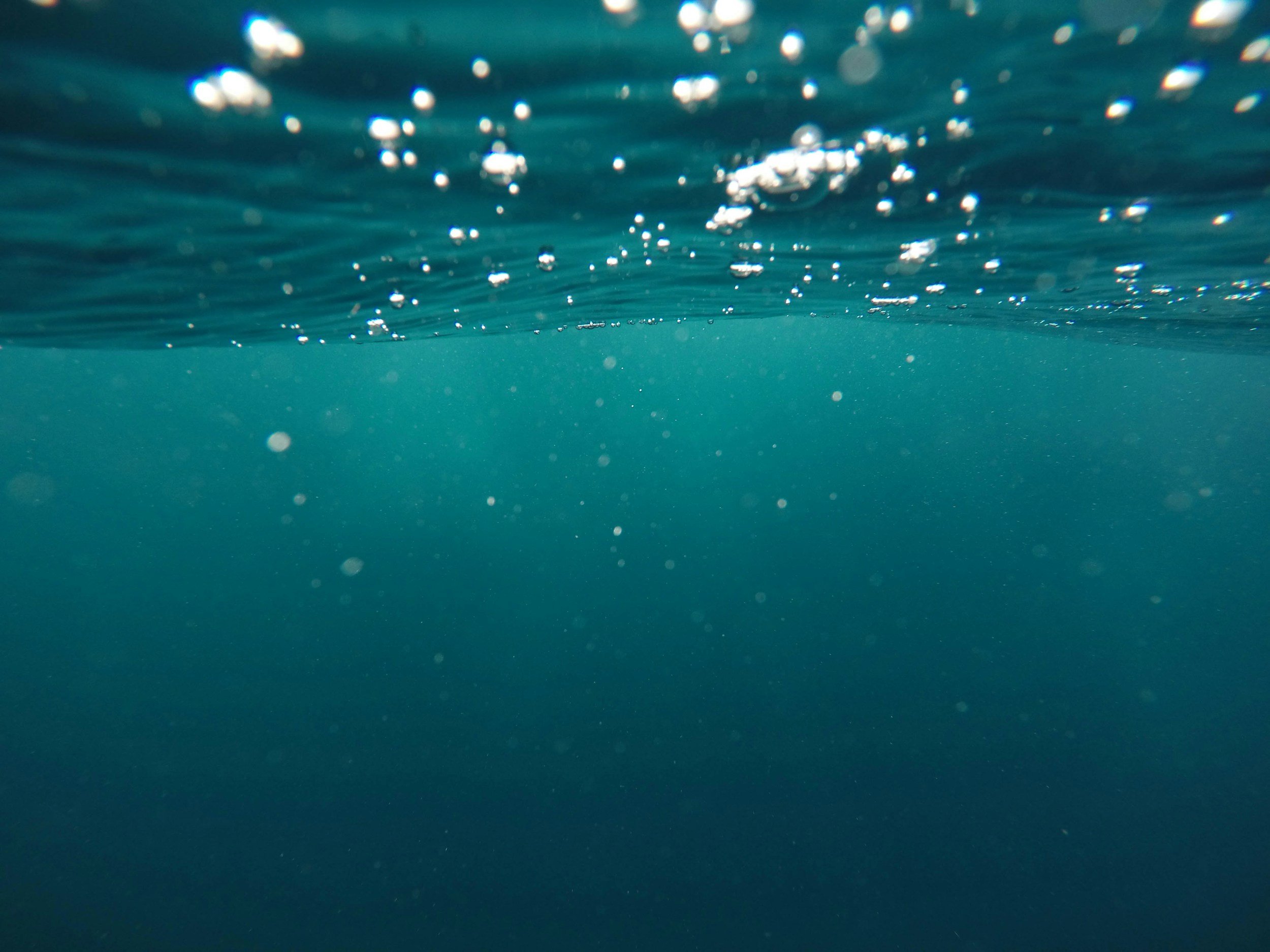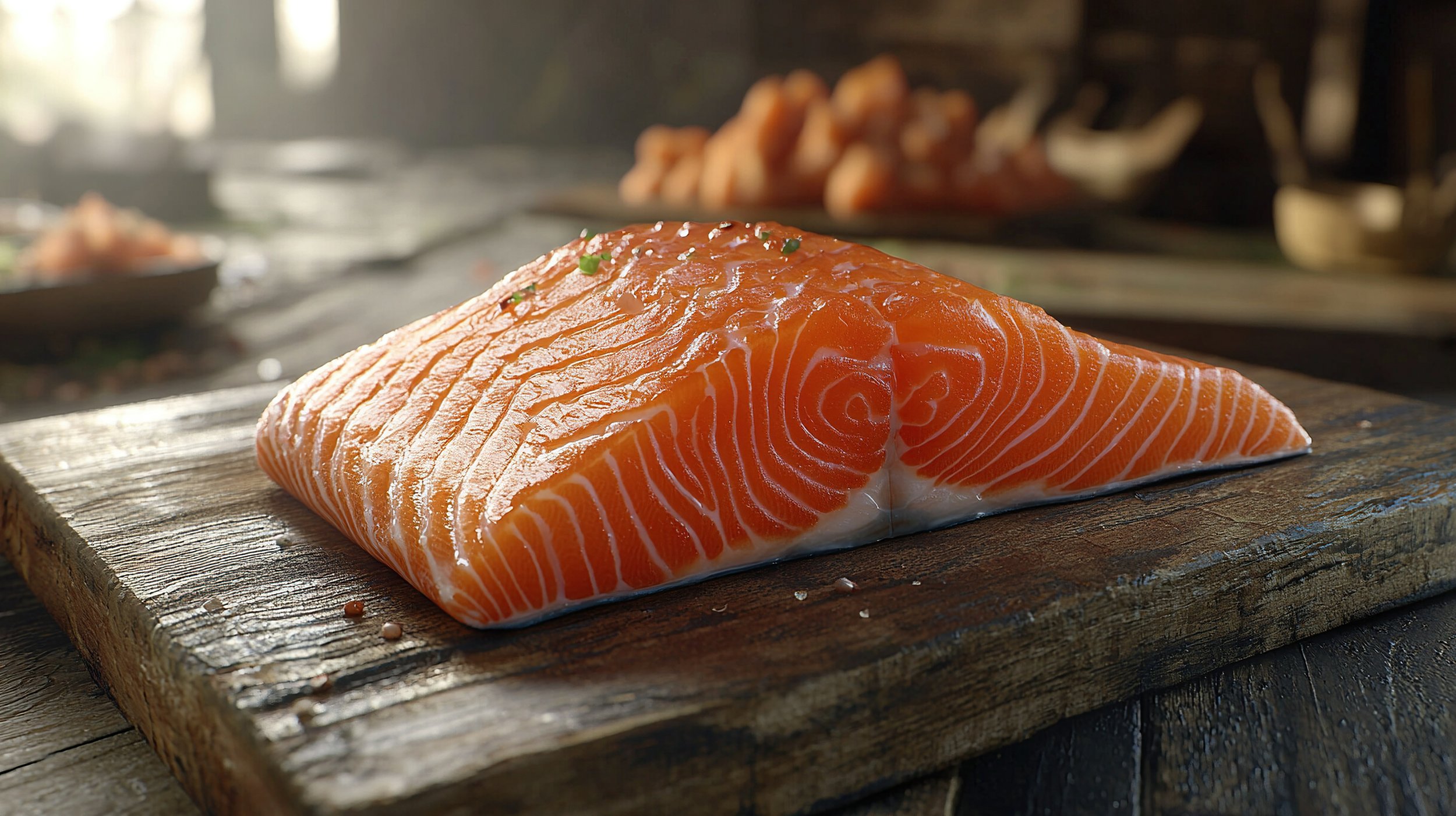
Radically amplify the impact of your essential feed ingredients in farmed salmon - naturally.
A category tension: how to produce vivid, healthy salmon - naturally and at lower cost
The $20B+ global salmon farming industry relies heavily on ingredients such as Omega 3s and astaxanthin to optimise fish health, provide red pigmentation and reduce mortality. However, the effectiveness of active ingredients such as astaxanthin has declined due to feed formulation conflicts, storage degradation, and fish stress from parasite treatments and environmental factors. This creates inefficiencies and substantially higher costs for salmon farmers, in parallel with increasing consumer demand for natural and sustainable farming solutions.
What we do: Unlock nature’s potential using our patented liposomes
BioUp’s patented liposome technology is proven to dramatically enhance astaxanthin uptake in farmed salmon by more than 50%. This encapsulation technology similarly unlocks the potential of other fat-soluble micro-nutrients and bio actives deployed in salmon diets.
This liposome delivery platform innovation supports:
Superior pigmentation targets achieved with half the ASTA in the feed.
Enhanced fish health and resilience, particularly under stress conditions.
Reduced mortality, improving production yields and profitability.
Optimised feed conversion, contributing to better overall economics for salmon producers.
Simple implementation by incorporation of liposomes into mash pre-extrusion
Our liposome technology offers a scalable delivery platform for targeted nutrition and functional feed strategies — unlocking new value capture from existing diets and active ingredients to enable more precise and profitable feeding programs.
Liposomes Explained
Fig. 1: Liposome Structure
Liposomes have a double-layer shell with a water-based centre.
BioUp’s liposomes carry both water-soluble payloads (like vitamin C) in the centre and fat-based nutrients such as fish oils, vegetable oils, and omega-3s in the shell— only possible at scale and using commodity food-grade phospholipids with the BioUp patented technology.
Liposomes are sub-microscopic bubbles made from natural, food-safe phospholipids — not too different from those found in a salmon’s own cell membranes. Inside, they can carry important nutrients or additives in a protected, water-based centre. These natural delivery systems help ensure that key ingredients like astaxanthin or vitamins make it through feed processing and digestion, so the fish can absorb and use them where it matters most
Discovered in the 1960’s, subsequent pioneering research at Caltech resulted in injectable anti-cancer and anti-infective drug applications developed and proven over many decades. BioUp co-founder Dr Crispin Eley led the development of the world’s first liposome drug at Gilead Sciences.
At BioUp, Dr Eley and team have realised the immense opportunity of liposomes in a wide range of applications. BioUp mimics nature’s delivery system to maximise nutrient and bioactive ingredient uptake across people, plants and animals. See how they apply this technology across different applications www.bioup.com
This proven and patented technology, along with our two founders combined experience in formulating, scaling and manufacturing liposomes, is now available to improve outcomes in aquaculture.
Who we are
BioUp Aqua is a biotechnology venture that utilises patented liposomal technology to deliver low-cost solutions and better outcomes for aquaculture production.
BioUp Aqua’s experts have experience spanning decades in biotechnology, aquaculture, and environmental sustainability.
Core Team
-

Crispin Eley
CHIEF SCIENTIST
BIOUP MIMETIC TECHNOLOGIES, INC
-

Adrian Barker
COMMERCIAL PROGRAMME DIRECTOR
METHANE MITIGATION VENTURES LIMITED
-

Rob Dorey
DIRECTOR & PRINCIPAL
BSP ADVISORY GROUP LIMITED
Advisors
-
Patrick Manning
EXECUTIVE CHAIRMAN
BIOUP MIMETIC TECHNOLOGIES, INC
-
Tom Sturgess
FOUNDER
METHANE MITIGATION VENTURES LIMITED
-

Sam Bowman
MANAGING PARTNER
BLUE ECONOMY CONSULTING GROUP
FAQs
How does BioUp Aqua’s liposomal encapsulation technology work?
BioUp Aqua uses patented liposomes to enhance the bioavailability of bioactive ingredients in salmon feed. By encapsulating the ingredients in liposomes (all GRAS classified), the technology protects the pigment during feed storage and promotes fish digestion, ensuring more effective uptake. When trialled with astaxanthin, uptake was substantially improved with less than 50% dosing needed for the fish’s muscle tissues to develop a vivid red fillet colour. Indications are that feed shelf life is also extended (to be quantified).
What are the benefits of BioUp Aqua’s technology for salmon farmers and salmon quality?
BioUp Aqua's liposomal encapsulation technology provides the opportunity to dramatically reduce astaxanthin levels in feed by more than 50% and still deliver industry-standard pigmentation. Beyond astaxanthin, this technology can be applied to a broad range of active ingredients including lipid-based micronutrients, anti-parasitics, and antimicrobials. The technology is suitable for co-formulation - with potential synergies - allowing feed manufacturers to enhance precision feeding regimes that improve fish health and farm productivity. This enables farmers to meet growing consumer demands for premium-quality salmon while optimising growth performance and reducing mortality.
What trial work has been undertaken to date?
A 5-month trial at the Huntsman Marine Science Centre in Canada compared liposome-encapsulated astaxanthin with standard formulations during Atlantic salmon feeding trials. Results showed equivalent flesh pigmentation after 90 days at half the astaxanthin dose using liposome formulations, plus improved astaxanthin stability in feed, and good results for salmon health, growth, and feed conversion. These scientific findings validate the liposome-astaxanthin technology’s effectiveness and readiness for scaling.
What are the next steps for the technology to become commercially available?
Pre-commercial sea pen trials with industry partners are required to validate the positive sea tank results from the Huntsman trials. This phase will focus on refining feed formulations incorporating synthetic and natural astaxanthin, plus other bioactive ingredients, using the liposomal technology.
A further step will be optimising the production of natural astaxanthin in combination with liposomal technology to ensure commercial scalability and readiness for market.
Is this technology easy to implement in conventional feed manufacturing?
Yes. BioUp’s liposomes can be produced in a number of formats, and can be introduced into the feed mash before conditioning and extrusion: no special handling is required. The technology is easy to introduce in a conventional feed mill.
Can this technology also be used with natural astaxanthin?
BioUp Aqua’s technology has been successfully tested with natural astaxanthin. Access to low cost (RAS grown algae) astaxanthin in conjunction with BioUp Aqua’s proprietary liposomes highlights the ability to provide, for the first time, a cost-effective alternative to synthetic pigment options. Ongoing optimisation in pre-commercial trials will further enhance its application for farmers seeking to align their products with consumer preferences in organic and other sustainable seafood markets.
How does this technology support sustainability in salmon farming?
The liposomal technology reduces the global salmon farming industry’s reliance on synthetic astaxanthin. And the ability to incorporate natural astaxanthin far more cost-effectively, supports a progressive shift toward more natural and sustainable farming practices. Further, the anticipated improvement in health and reduction in mortality reduces the environmental burden for a given yield of fish.




